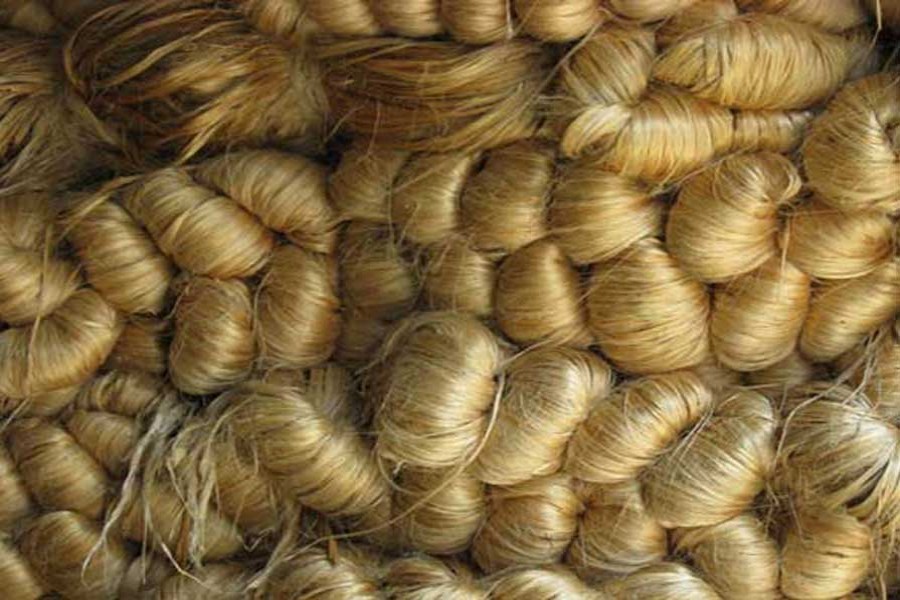
Published :
Updated :

Despite many constraints it encountered for years, the jute sector, finally, in the past one decade appears to have been looking up. However, it is still dogged by some age-old issues including hoarding of raw jute by some unscrupulous jute traders resulting in the golden fibre's artificial scarcity in the market and its attendant price hike. Desperate to get around the situation, the association of jute mill owners last week decided that they would not buy any good quality raw jute above Tk 3,000 per maund. Even so, currently the hoarder-dictated high quality raw jute is selling in the market, reportedly, at prices up to as high as TK 3,800 per maund. However, the millers' stand on the price is yet to leave any impact on the overall price situation in the jute market. Small wonder that the jute mill owners are now seeking government intervention in the matter to rid the jute market of the exploitative influence of a section of jute traders.
Evidently, the millers' demand is logical since, due to the irrational hike in jute price, they could procure only 40 per cent of their requirement of raw jute last season. Apart from being forced to run below capacity, many of the jute mills had even to face closure during the past three years. In the circumstances, it is hardly surprising that stakeholders of the sector including the Bangladesh Jute Mills Association (BJMA), Bangladesh Jute Spinners Association (BJSA), Bangladesh Jute Association (BJA) and Bangladesh Jute Goods Exporters Association (BJGEA) from a meeting in the city on Tuesday expressed their grievances to the government including the demand that ceiling of the raw jute price, especially, that of high quality type, should be fixed.
Now that the millers are fighting to take control of the jute market being distorted by a vested group, one would like to ask whether the jute growers are getting any benefit out of the prevailing bullish trend in the jute market. Unfortunately, not. Because, in the rural markets where the growers take their jute to sell, the middlemen reign supreme. As usual, they deprive farmers of their due price. In fact, the entire jute sector, from the growers' level up to its final destination to the mills, has the same story-neither the producers nor the end users of raw jute have any control over the precious natural fibre. In consequence, the export of jute and jute products has greatly suffered. For instance, going by the words of the head of the jute spinners association, over the past two years the country failed to meet 60 per cent target of jute yarn export to Turkey. Notably, Turkey is Bangladesh's largest jute yarn market. It is the unavailability of raw jute at fair price that lay behind that failure, the BJSA chairman further alleged.
It is important to note at this point that the millers in question belong to the private sector. Remarkably, it is these private entrepreneurs who during the last one decade have helped a lot to keep the sinking jute sector afloat through diversifying its products as well as increasing exports. Against the backdrop, it is imperative that the government put its foot down to bring an end to the unhealthy grip of the middlemen and the illicit syndicate on the jute market.


 For all latest news, follow The Financial Express Google News channel.
For all latest news, follow The Financial Express Google News channel.